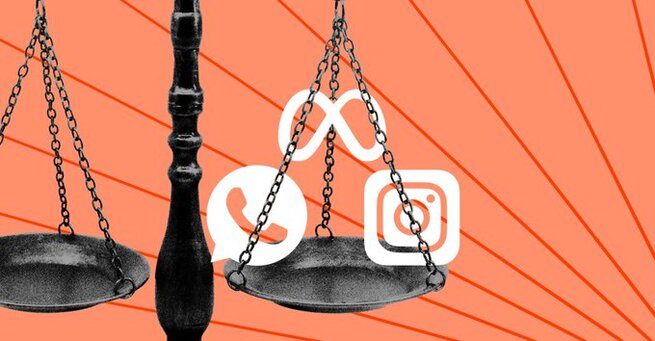
When users search for why Instagram's CEO testified about TikTok or how TikTok impacted Instagram's growth, they are looking for clear insights into how competition forced changes at Meta. In 2018, Adam Mosseri stepped into the CEO role at Instagram, facing an alarming drop in user engagement. During his testimony in the Federal Trade Commission’s (FTC) antitrust trial against Meta, Mosseri candidly admitted that TikTok's meteoric rise caused Instagram to either adapt aggressively or risk fading away. Highlighting the severity of the situation, he told the court, "You're either growing, or you're slowly dying," emphasizing how TikTok disrupted the social media landscape almost overnight.
Mosseri's testimony laid bare Instagram's internal struggles, revealing that by 2019, 23% of the decline in U.S. user time on Instagram was directly attributed to TikTok's growing dominance. The onset of the COVID-19 pandemic only amplified TikTok's reach, pushing Instagram into a corner. In a March 2020 internal memo, Mosseri warned his team that rapid adaptation was critical for survival. This moment served as a major turning point for Meta, demonstrating how competition in the digital economy forces even tech giants to innovate or lose ground.
Since Mosseri’s stark warning, Instagram launched several initiatives to reclaim its position, most notably the rise of Instagram Reels. Improved AI-powered content recommendations became a game changer, helping the platform claw back engagement numbers. Despite these gains, Mosseri admitted during his testimony that TikTok remains “the fiercest competition we have ever faced.” Interestingly, as Instagram moved to mimic TikTok’s success with short-form videos, TikTok started adopting more Instagram-like features — a sign of intense cross-platform rivalry that continues to reshape the industry.
At the heart of Mosseri’s appearance was the FTC’s claim that Meta has illegally monopolized the market for personal social networking services. While apps like Snapchat were considered direct competitors, TikTok and YouTube were positioned differently due to their entertainment focus. Yet Mosseri's revelations complicated the narrative, showing that even as Instagram leaned heavily into entertainment, it still emphasized its role in connecting friends and family — a distinction critical to Meta’s defense strategy. This highlights a broader debate in antitrust circles: What exactly defines a social network in today’s evolving digital economy?
For Meta, the stakes of this trial extend far beyond financial penalties. A ruling against the company could force changes in how Instagram, Facebook, and WhatsApp operate — possibly leading to structural separations or tighter regulations. For digital advertisers and influencers, a reshaped social media ecosystem would shift where high-value advertising dollars go. Given that mobile ad spend and digital video advertising are expected to soar over the next five years.
Mosseri’s stark message — innovate or face decline — is a warning not just for Instagram, but for all social media platforms. User attention is fleeting, and the platforms that win will be those that continuously evolve with changing consumer behaviors. In a landscape driven by short-form video content, AI personalization, and authentic user engagement, complacency is no longer an option.
𝗦𝗲𝗺𝗮𝘀𝗼𝗰𝗶𝗮𝗹 𝗶𝘀 𝘄𝗵𝗲𝗿𝗲 𝗿𝗲𝗮𝗹 𝗽𝗲𝗼𝗽𝗹𝗲 𝗰𝗼𝗻𝗻𝗲𝗰𝘁, 𝗴𝗿𝗼𝘄, 𝗮𝗻𝗱 𝗯𝗲𝗹𝗼𝗻𝗴. We’re more than just a social platform — from jobs and blogs to events and daily chats, we bring people and ideas together in one simple, meaningful space.